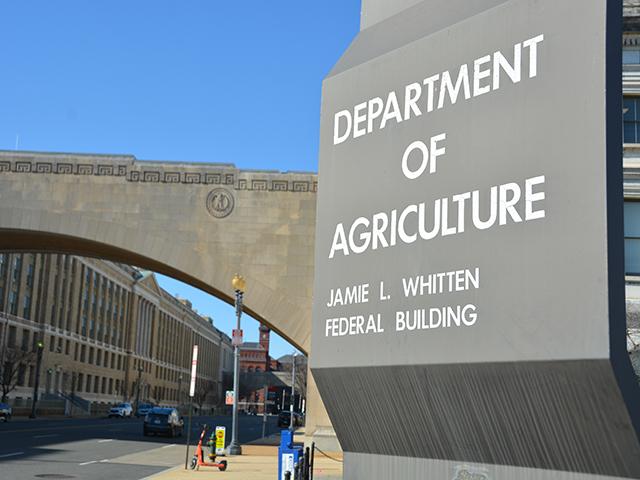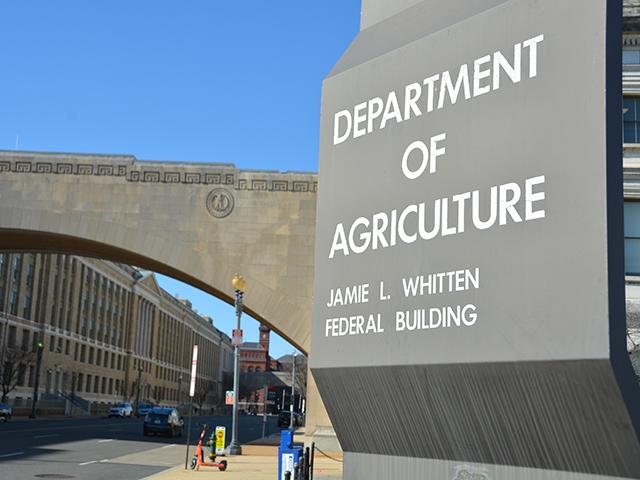Ag Policy Blog
Farm Bureau Letter Adds to Complaints Over Dropped NASS Reports
The American Farm Bureau Federation is adding its voice to groups calling on USDA to reverse a decision by the National Agricultural Statistics Service (NASS) to cancel a July cattle inventory survey, as well as county-level estimates for crops and livestock and the objective yield survey for cotton.
AFBF President Zippy Duvall On Tuesday sent a letter to USDA to emphasize the importance of the surveys, particularly the July cattle report.
"NASS' two reports regarding the total U.S. cattle inventory, published on Jan. 31 and in late July, give farmers, ranchers, researchers and other data users a full picture of supplies in the U.S. cattle sector at the beginning and in the middle of each year," AFBF's letter stated. "This allows for a fair assessment of the cattle market for the next six months. Eliminating the mid-year report puts the market in the dark for the second half of the year, removes market transparency and increases market volatility. Data will only be available to those who can afford to collect it, further threatening competition in the packing sector."
Also see, " Producers, Others Raise Concerns Over NASS Dropping Midyear Cattle Report," https://www.dtnpf.com/…
The loss of the Objective Yield Survey for cotton may also increase the level of uncertainty throughout the summer and early fall for cotton markets, and the elimination of county yield estimates will undercut the research upon which risk management programs, including crop insurance, are based.
"Eliminating county-level yield and production data for crops and livestock will also severely impact research from our land-grant institutions and only place the U.S. farther behind its trade competitors," President Duvall wrote. "Recent research by USDA's Economic Research Service showed that the U.S. trails its global competitors in public agricultural research."
P[L1] D[0x0] M[300x250] OOP[F] ADUNIT[] T[]
On Monday, the Renewable Fuels Association set a letter to NASS Administrator Joseph Parsons stating NASS should reconsider because of a "rapid emergence" of state and federal climate policies that will "compel ethanol producers to carefully track" feedstock characteristics. Cooper said there is not a "viable alternative source" of county-level yield estimates.
"NASS's planned discontinuation of county estimates is particularly ill-timed, as several federal agencies are working to develop a version of the GREET life cycle analysis model that will be used to estimate sustainable aviation fuel emissions in connection with section 40B of the Inflation Reduction Act," Cooper said in the letter.
USDA officials have said since the announcement last week that the late budget from Congress along with no increase for NASS resulted in the agency eliminating the three reports. Agriculture Secretary Tom Vilsack told reporters USDA had to fill in a 5.2% increase departmentwide in salaries with a flat budget that came seven months into the year. "That's a big chunk of money that we had to find."
He added, "They can get mad at NASS, but they really should go and talk to the appropriators. The way this budget works, it's tough. It's tough because it's not as if the Department of Agriculture is the first budget to get done."
Vilsack noted Defense doesn't get cut, but when the federal budget is operating under a specific limit in discretionary spending, then the agencies and departments that are among the last budgets to get finalized end up facing cuts someplace.
"All of those people who are upset, they should talk to the people who appropriate the money and these surveys are really important to us and you shouldn't cut NASS."
A way to protect USDA's discretionary budget, Vilsack said, would be to take the nutrition program, Women Infant and Children (WIC) and make it a mandatory funded program. The major budget fights over USDA's discretionary budget often come down to increasing funding for WIC, but then there is less available for other agencies. The WIC budget takes as much as 30% of USDA's discretionary budget right now.
"I think appropriators ought to think about that. It would make their lives easier, it would certainly make the farmers lives easier and it would probably result in fewer people being upset over reports being cut."
Lost in this debate about the NASS survey cuts is that Hubert Hamer, the agency's administrator, also has now recently retired. Hamer had led NASS since 2016 and had served in several leadership roles at the agency in his career before ascending to its top role.
Chris Clayton can be reached at Chris.Clayton@dtn.com
Follow him on the social media platform X @ChrisClaytonDTN
(c) Copyright 2024 DTN, LLC. All rights reserved.






Comments
To comment, please Log In or Join our Community .